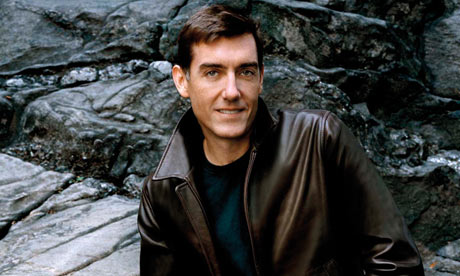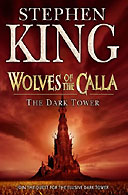For the early years of his career as a writer, Justin Cronin won awards and got teaching posts for the sort of book that is described as sensitive and evocative; then he decided to do something else, but to do it with the same seriousness and competence. The first novel of his vampire trilogy, The Passage, was a canny combination of disparate elements – he had learned from Stephen King how to tear the world apart and set monsters loose in it, and from Tolkien how to set a new innocent generation on a quest for the cure to the world's pain. What is impressive about that book, and now its sequel The Twelve, is that there is nothing contemptuous about Cronin's approach; this is a formal exercise based on study and thought, but it has also a serious commitment to the virtues he has found in genre fiction – well-paced flurries of action and a deepened portrayal of the conventional emotions that too often become clichés.
A government agency which mistakes ruthlessness for competence infects a bunch of serial rapists and killers with a rare virus and inflicts on America a scourge that combines master vampires with a zombie apocalypse. In a matter of months, hordes of brainless killers mentally controlled by the original 12 experimental subjects have eaten most of North America; a few isolated outposts try for most of the next century to survive and put things back together. In the first book, a group of adventurers destroy the creature that ruled Las Vegas; one of them, Alicia, was infected but became the sort of super-soldier the original programme was aiming for, just as Amy, a young girl who travels with them and helps them, acquired the long life of the vampire without other disadvantages.
Yet these victories were balanced by the destruction of two of the surviving settlements and the disappearance of most of their inhabitants – clearly there was something about this devastated future world that Cronin had not yet told us. One of the things he has learned from his originals is how to make his readers wait. We know that there will be a world beyond these events – some of the documents are attributed to a conference on American history centuries later, and the rehash of the first volume is written in a scriptural style as if recalled perhaps later still.
The first big surprise of The Twelve is that he goes back to the beginning, to the early stages of the plague and the reactions to it of four new characters – the dying bureaucrat Guilder, the heroic disabled soldier Kittredge, Lila, a demented ex-nurse, and Grey, a sex-offending janitor at the laboratory where the Twelve were created.
It was noticeable in The Passage that Cronin was copying from King the habit of making us invest our emotions in characters who were not going to survive, and we suspect from first meeting him, squatting a penthouse in a deserted Denver skyscraper where he passes the time by taking potshots at vampires, that Kittredge will be one of these. He survives longer than we expect, though, long enough to, in one of Cronin's occasional mis-steps into ludicrous sentimentality, father another key character's grandmother – clearly this is a universe in which heroism is genetically transmitted.
On the other hand, Cronin is a deal more tough-minded and interesting in his portraits of Guilder, who chooses to betray the human race rather than accept his own mortality, and Grey, who has his weaknesses, but tries hard not to become a monster – one of the reasons why we hate Glaister so very much is that he takes vulnerable people and forces monstrosity on them. We see the earliest stages of all this, and then we see how it has played out 90 years later, with Guilder as dictator of a New Order of the semi-vampiric and their servants, doing the Twelve's work for them.
Second volumes of trilogies have always to change the rules that the reader has come to accept – change our sense of who the antagonist is so that thrills and climaxes can be delivered before the eventual third volume's race to settle final accounts. Cronin has understood this well, but that is not all that there is to The Twelve – he deepens his portrait of his principals, the saintly Amy, Alicia whom infection and survival have honed into the sword of virtue and Peter, the ordinarily heroic man who has to cope with the two extraordinary women that he loves and fights alongside. In the end, the reason Cronin has chosen to stray into genre fiction is just this – in his heroes, and his villains, and his reluctant monsters, he gets to write about people whose choices matter.
• Roz Kaveney's Rituals: Rhapsody of Blood is published by Plus One.








